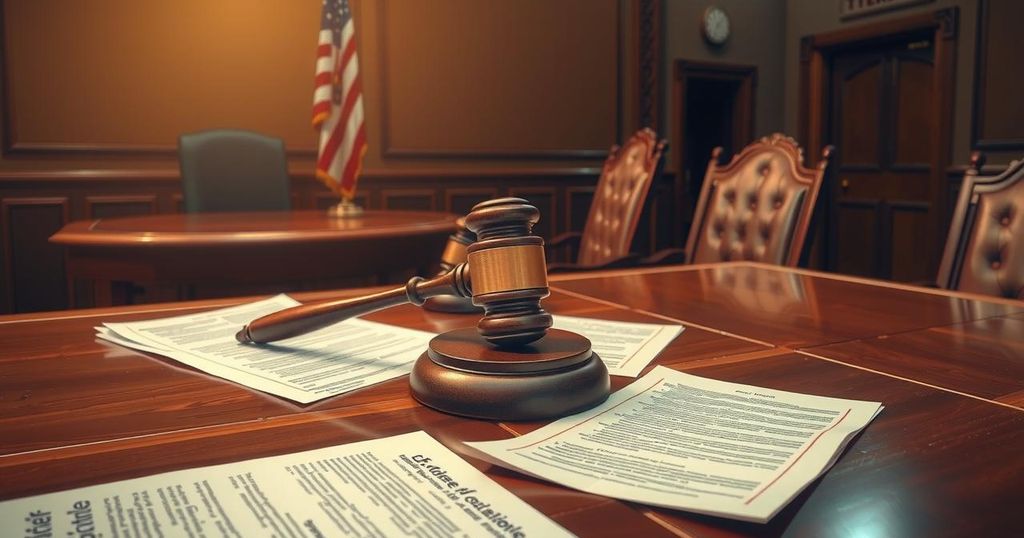Legal Showdown: Justice Department Resists Court Orders on Deportation Flights

The Justice Department is resisting a federal judge’s demand for detailed information about deportation flights to El Salvador, arguing it intrudes on executive powers. This confrontation arises from tensions between the Trump administration and the judiciary following judicial setbacks regarding deportation policies under a wartime law. Judge Boasberg has mandated information disclosure or justification for withholding it, amid allegations of possible negligence regarding past orders.
The Justice Department is contesting a federal judge’s request for detailed information regarding deportation flights to El Salvador, asserting that such inquiries intrude upon executive authority. This confrontation highlights tensions between the Trump administration and the judiciary, particularly following judicial setbacks related to deportation policies under a historic wartime law.
U.S. District Judge James E. Boasberg mandated the administration respond to questions under seal, addressing the logistical details of deportation flights. The judge’s scrutiny follows allegations that the administration may have disregarded his court order, which mandated the cessation of flights transporting deportees to El Salvador’s notorious prison.
The Justice Department described the judge’s inquiries as substantial intrusions into the executive branch’s prerogatives concerning national security. They suggested the potential invocation of the “state secrets privilege” to protect sensitive information pertaining to the flights, voicing opposition to the notion that judicial oversight could supersede executive authority.
In response, Judge Boasberg stipulated a deadline for the administration to either comply with the request or assert a necessity to withhold information to protect state secrets. He emphasized the importance of the inquiry to determine any potential disregard for his previous directives and their implications.
President Trump has relied upon the Alien Enemies Act, attributing the deportation initiative to a perceived threat posed by the Venezuelan gang Tren de Aragua. Consequently, Judge Boasberg has prohibited deportations under this act until further notice.
The administration’s recent updates reflected limited compliance with Boasberg’s order, indicating that two flights departed before the ruling, while a third, departing post-ruling, did not carry individuals subject to the law. White House Press Secretary Karoline Leavitt disclosed that approximately 261 individuals had been deported, with 137 falling under the contested legal framework.
The ongoing dispute between the Justice Department and Judge Boasberg underscores significant tensions surrounding executive authority and judicial oversight in immigration matters. As the administration continues to address the court’s inquiries, the implications for deportation policies and the application of the Alien Enemies Act remain critical areas of scrutiny. The situation reflects broader challenges in navigating national security, human rights, and legal governance in immigration enforcement.
Original Source: apnews.com







